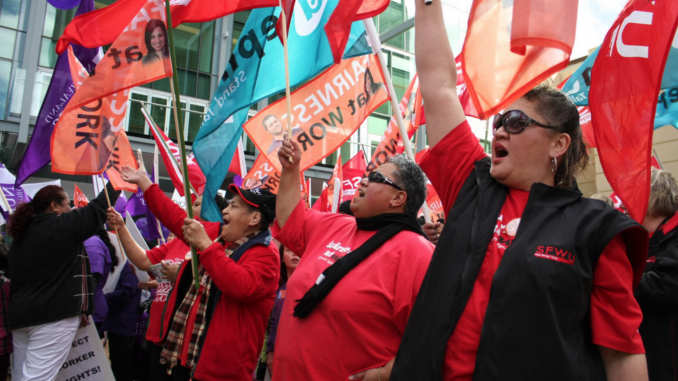
All previous historical movements were movements of minorities, or in the interest of minorities. The proletarian movement is the self-conscious, independent movement of the immense majority, in the interest of the immense majority. The proletariat, the lowest stratum of our present society, cannot stir, cannot raise itself up, without the whole superincumbent strata of official society being sprung into the air.
(Marx & Engels, 1848)
…the emancipation of the working classes must be conquered by the working classes themselves.
(Marx, 1864)
Most people know that socialists place the working class at the centre of their political vision. But why exactly? In this video and reading Vivek Chibber explains that the reason socialists focus on the working class is not just because of the obvious indignities and material deprivations that they experience. It is also, more importantly, based on a diagnosis of the root sources of injustice, and a prognosis of the most likely levers to overcome injustice.
Video talk
Required reading
Chibber, V. (2016). Why do socialists talk so much about workers? (pp, 121-126). In Bhaksar, S. (Ed). The ABCs of Socialism. London: Verso.
Chibber argues that capitalism denies most people two fundamental preconditions for a decent life: material security and freedom from domination. As he puts it:
Economic and political power is in the hands of capitalists, whose only goal is to maximize profits, which means that the condition of workers is, at best, a secondary concern to them. And that means that the system is, at its very core, unjust. (p. 123)
Attempts by reformers to reduce the material deprivation and improve the self-determination of workers meet with the resistance of elites, who use their money and power to resist reforms that threaten their income (though taxation) or their profits. To fight this resistance requires a powerful lever for change, and, as Chibber points out:
The working class has this power, for a simple reason — capitalists can only make their profits if workers show up to work every day, and if they refuse to play along, the profits dry up overnight. And if there is one thing that catches employers’ attention, it’s when the money stops flowing. (p. 125)
That is why, as Chibber argues, it is so important that the workers organise to fight oppression, they are the only group with the real power to challenge the system, a system that depends on their acceptance of exploitation and oppression, “This combination of moral urgency and strategic force is why socialist politics is based on the working class.” (Chibber, 2016, p.126).
Questions to discuss
- Can workers in modern Aotearoa New Zealand be said to experience material deprivation and experience restrictions on their autonomy?
- Can you identify recent examples where workers have struggled against the capitalist class in Aotearoa New Zealand?
- In the video talk Chibber argues, that in terms of the practicalities of achieving social change, socialists need to get over their love of the margins and focus on the working class, because the working class is central to the capitalist system. Do you agree?
Additional reading
Bramble, T. (2011). Does the Australian working class have the power to change society? Marxist Left Review. 2.
Draper, H. (1997). Why the working class? Socialistworker.org
Mandel, E. (1977). The origins of the labour movement (pp. 73-79). Extracted from From class society to communism: An introduction to Marxism. London: Ink Links.
Ongley, P. (2016). Class in New Zealand: Past, present and future, Counterfutures. 1, 71-101.
Robb, J. (2015, April 19). The origins of the working class in New Zealand. [Blog post] Retrieved from https://convincingreasons.wordpress.com/2015/04/19/origins-of-the-working-class-in-new-zealand/
Image credit: J Darroch
